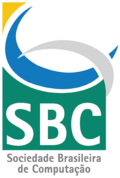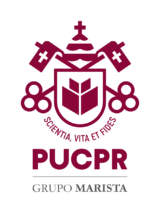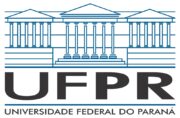It is important to highlight to the SBSeg community that the submission deadlines have been anticipated compared to previous years. It is mainly due to two factors: (i) SBSeg 2025 has been scheduled two weeks earlier than in 2024, and (ii) there is a deadline for the production and availability of the proceedings on SOL before the event date.
CALL FOR PAPERS
SBSeg 2025: XXV Brazilian Symposium on Cybersecurity
Foz do Iguaçu – PR, September 1-4, 2025
PRESENTATION
The SBSeg Short Courses aim to cover relevant topics generally not included in undergraduate curricula while sparking interest in security among academics and professionals. These courses can be either practical or theoretical. Priority is given to current topics with the most significant potential to attract the interest of young students and professionals, helping to better qualify them for research and/or the job market.
Each short course should be structured for three hours of presentation.
INSTRUCTIONS FOR AUTHORS
Professors and researchers interested in delivering a short course must submit a proposal, written in Portuguese, detailing the nature of the course (practical or theoretical). The proposal should be between 3 and 5 pages (excluding CVs, item 6 below) and include the following information:
- Identification details – Course title, authors, institution(s), and indication of the author(s) who will present the short course;
- General information – Course objectives, approach to the topic (e.g., theoretical or practical; general overview of results or in-depth analysis of specific aspects; presentation or comparison of technologies; skill development or information dissemination, etc.), and the desired audience profile;
- Planned structure of the text (topics/sections to be developed);
- For each topic/section listed in item 3, provide a summary of its content and an estimated number of pages;
- Main bibliography used in the preparation of the short course;
- Brief Curriculum Vitae of the authors (maximum of one page per author).
All the above information must be included in a single document (a PDF file) and submitted exclusively through the SBC JEMS3 system (https://jems3.sbc.org.br/events/269/479/submit). The evaluation will consider the following criteria: Relevance and timeliness of the topic for the event, Technical quality of the proposal, and Experience of the proposer(s) in the proposed topic, especially that of the presenter(s). The best proposals on distinct topics will be selected for presentation and publication. Only proposals covering different topics will be accepted to ensure a diverse range of short courses.
Authors of selected proposals must produce a book chapter in Portuguese, ranging from 40 to 50 pages. These chapters will be published in the book “Minicursos SBSeg 2025”. The template for the book chapter is available on the SBC portal. https://www.sbc.org.br/documentosinstitucionais/#comissoes-especiais-e-grupos-de-interesse
It is important to verify whether the short course topic has already been published in previous SBSeg short course editions (https://www.ceseg.org/mini-cursos). If the topic has been published before, it is not eligible for new publication.
SBSeg 2025 will be held in person, meaning that all accepted short courses must be presented on-site. At least one co-author must attend in person to present the short course, which should be structured for three hours.
IMPORTANT DATES
- Short course registration: May 12, 2025
- Short course submission: May 12, 2025
- Notification to authors: June 6, 2025
- Final version: July 21, 2025
TOPICS OF INTEREST
The topics of interest are organized into two main areas:
- Cryptography
- Security of Computer Systems and Communication Networks
These topics align with those of the Main Track of the SBSeg.
USE OF GENERATIVE ARTIFICIAL INTELLIGENCE
Please review the new SBC CODE OF CONDUCT (https://sol.sbc.org.br/index.php/indice/conduta), especially regarding Generative Artificial Intelligence (AI).
TECHNICAL PROGRAM COMMITTEE
Altair Santin – Pontifical Catholic University of Paraná (PUC-PR)
Eduardo Viegas – Pontifical Catholic University of Paraná (PUC-PR)
Daniel Batista – Institute of Mathematics and Statistics, University of São Paulo (IME-USP)
Marcos Simplicio Jr – Polytechnic School, University of São Paulo (Poli/USP)
Diego Kreutz – Federal University of Pampa (UNIPAMPA) and Monash University
Igor Moraes – Fluminense Federal University (UFF)
Natalia Castro Fernandes – Fluminense Federal University (UFF)
Eduardo Souto – Federal University of Amazonas (UFAM)
Luiz Fernando Rust da Costa Carmo – National Institute of Metrology, Quality and Technology (Inmetro)
Marcia Henke – Federal University of Santa Maria (UFSM)
Raul Ceretta Nunes – Federal University of Santa Maria (UFSM)
Ricardo Dahab – University of Campinas (IC/Unicamp)
Ricardo Custódio – Federal University of Santa Catarina (UFSC)
COORDINATION
SBSeg 2025 Short Course Coordination
- Diogo Menezes Ferrazani Mattos (UFF)
- Cíntia Borges Margi (USP)
General Coordinators
- Altair Santin (PUCPR)
- André Grégio (UFPR)
- Eduardo K. Viegas (PUCPR)
CESeg Coordinators
- Marcos Antonio Simplicio Junior (USP)
- Diego Kreutz (UNIPAMPA)
HOSTING
CONTACT
E-mail: [email protected]
in: linkedin.com/in/simpósio-brasileiro-de-cibersegurança-44584935a
Site: sbseg.sbc.org.br/2025
CESeg: www.ceseg.org
Instagram: instagram.com/sbseg2025
X: x.com/sbseg_sbc


